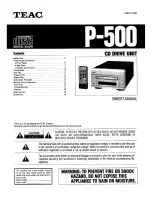
Option Name
Description
[7]
Analog input 54
[8]
Frequency input 29
[9]
Frequency input 33
[13]
24V encoder 27/29
Single signal generated from 24 V High Threshold Logic (HTL) encoder connected to terminals 27
and 29. Configure the 24 V encoder interface in
parameter group 5-7* 24V Encoder Input
. Program
terminals 27/29 to
[0] No operation
.
Parameter 7-01 Speed PID Droop
Table 367: Parameter 7-01 Speed PID Droop
7-01 Speed PID Droop
Default value: 0 RPM
Parameter type: Range, 0 - 200 RPM
Setup: All setups
Conversion index: 67
Data type: Uint16
Change during operation: True
The droop function allows the drive to decrease the motor speed proportional to the load. The droop value is directly proportional
to the load value. Use the droop function when several motors are mechanically connected and the load on motors can differ. En-
sure that
parameter 1-62 Slip Compensation
has a default setting. Enter the droop value at 100% load.
Parameter 7-02 Speed PID Proportional Gain
Table 368: Parameter 7-02 Speed PID Proportional Gain
7-02 Speed PID Proportional Gain
Default value: 0.015
Parameter type: Range, 0 - 1
Setup: All setups
Conversion index: -3
Data type: Uint16
Change during operation: True
Enter the speed controller proportional gain. The proportional gain amplifies the error (that is the deviation between the feedback
signal and the setpoint). This parameter is used with
parameter 1-00 Configuration Mode [0] Speed open loop
and
[1] Speed closed loop
control
. Quick control is obtained at high amplification. Increasing amplification makes the process less stable. For values with 4
decimals, use
parameter 30-83 Speed PID Proportional Gain
.
Parameter 7-03 Speed PID Integral Time
Table 369: Parameter 7-03 Speed PID Integral Time
7-03 Speed PID Integral Time
Default value: Size related
Parameter type: Range, 1.0 - 20000 ms
Setup: All setups
Conversion index: -4
Data type: Uint32
Change during operation: True
Enter the speed controller integral time, which determines the time the internal PID control takes to correct errors. The greater the
error, the more quickly the gain increases. The integral time causes a delay of the signal and therefore a dampening effect and can
be used to eliminate steady-state speed error. Obtain quick control through a short integral time, though if the integral time is too
short, the process becomes unstable. An excessively long integral time disables the integral action, leading to major deviations from
the required reference, since the process regulator takes too long to regulate errors. This parameter is used with
[0] Speed open loop
and
[1] Speed closed loop control
, set in
parameter 1-00 Configuration Mode
.
Parameter 7-04 Speed PID Differentiation Time
Table 370: Parameter 7-04 Speed PID Differentiation Time
7-04 Speed PID Differentiation Time
Default value: Size related
Parameter type: Range, 0 - 200 ms
Setup: All setups
Conversion index: -4
Data type: Uint16
Change during operation: True
AU373327181955en-000101 / 130R1208 | 191
Danfoss A/S © 2021.08
Parameter Descriptions
VLT® AutomationDrive EZ FC 321
Programming Guide
















































